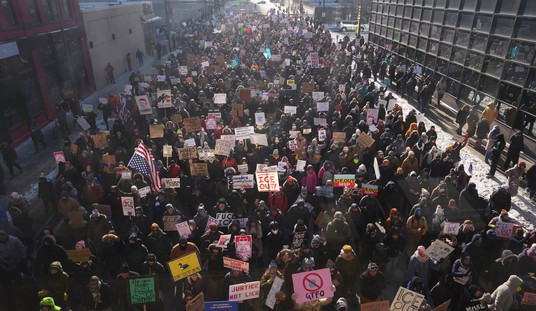Up to now, the only voices in opposition to Barack Obama’s expansive regulatory adventurism have been conservatives. Especially at the EPA, the White House has laid out its plans rather openly to conduct end-arounds Congressional opposition to enforcement of EPA’s finding on carbon dioxide, the lever which Obama intends to use to impose controls on American energy production, transportation, and other manufacturing in the US. The Wall Street Journal reports that opposition to these job-killing efforts has spread to unions — although for their own political purposes:
The Obama administration’s environmental agenda, long a target of American business, is beginning to take fire from some of the Democratic Party’s most reliable supporters: Labor unions.
Several unions with strong influence in key states are demanding that the Environmental Protection Agency soften new regulations aimed at pollution associated with coal-fired power plants. Their contention: Roughly half a dozen rules expected to roll out within the next two years could put thousands of jobs in jeopardy and damage the party’s 2012 election prospects.
“If the EPA issues regulations that cost jobs in Pennsylvania and Ohio, the Republicans will blast the President with it over and over,” says Stewart Acuff, chief of staff to the president of the Utility Workers Union of America. “Not just the President. Every Democratic [lawmaker] from those states.”
Say, isn’t it enough that the expansion of regulation would kill thousands of jobs? Shouldn’t that be the biggest concern of union executives, who supposedly represent the interests of working men and women? Acuff’s formulation puts workers secondary to the political aspirations of union executives and the Democrats their millions support.
Not that this comes as a great shock, of course.
Opponents of the administration’s plans have said for the last two years that expanded EPA attempts to control emissions would cost hundreds of thousands of jobs. The unions now agree with this assessment:
The EPA rule stirring the most anxiety will be proposed this week: It seeks to reduce emissions of toxic air pollutants, including mercury, which can cause neurological disorders in children.
An analysis by the miners’ union says the proposal, along with others targeting coal-related pollution, could put at risk as many as 250,000 jobs. Many of those would come from the utility, mining and railroad sectors, with the heaviest impact falling on Rust Belt states that have many old coal plants—and electoral votes.
“These are the same doomsday scenarios we hear whenever we take steps to protect Americans from dangerous air pollution,” responded EPA spokesman Brendan Gilfillan. He said it’s too early for the union to calculate possible job losses. A study released by the agency this month said EPA regulations put in place between 1990 and 2005 and aimed at reducing soot and smog will yield $2 trillion in benefits in 2020, largely from fewer premature deaths.
Let’s put that claim in perspective. Two trillion dollars equates to roughly 14% of this year’s GDP. Are we to believe that EPA regulation will add 14% to GDP, or that we’re losing 14% of our current GDP because of “premature deaths”? Let’s also note that life expectancy for the US has been steadily increasing since 1970 (and certainly before then) without EPA’s proposed intervention, according to the CDC:
The unions already have big problems in membership, especially in the private sector, where most of what remains comes from the same heavy industries that the EPA will put out of business. They may be a little late to the table and their priorities skewed, but their opposition to regulatory adventurism at the EPA certainly complicates matters for the Obama administration.
Update: Had to fix the first paragraph after the first excerpt; an editing change turned it into a circular argument.










Join the conversation as a VIP Member